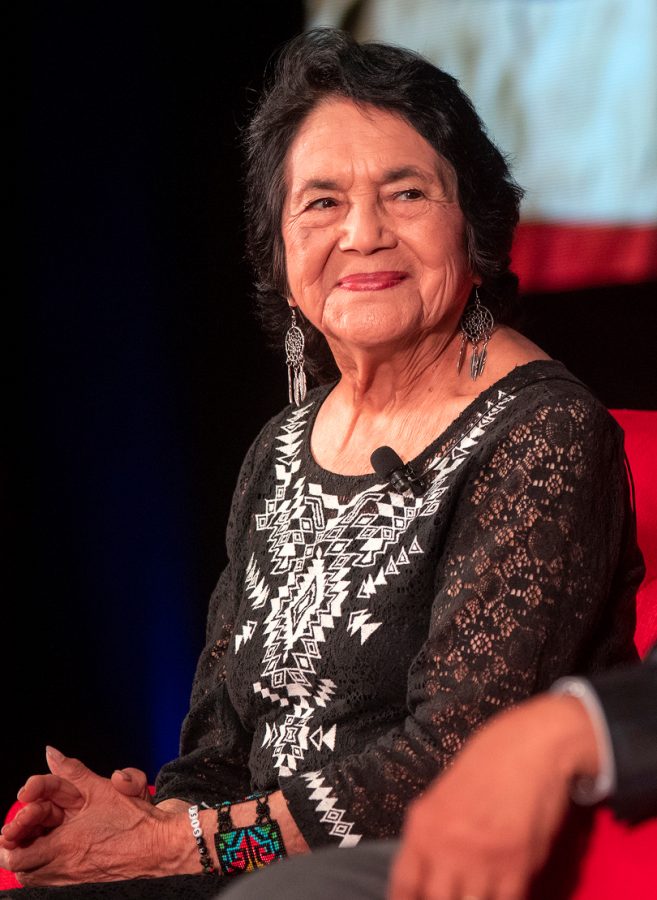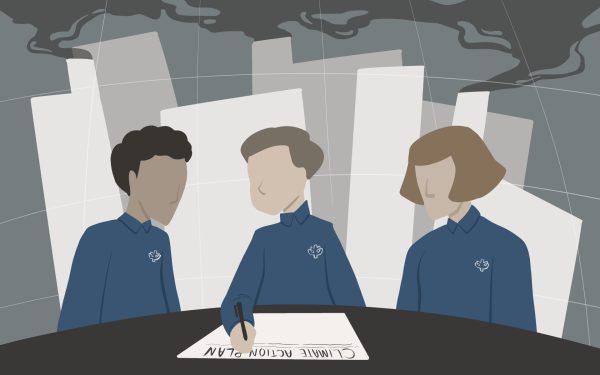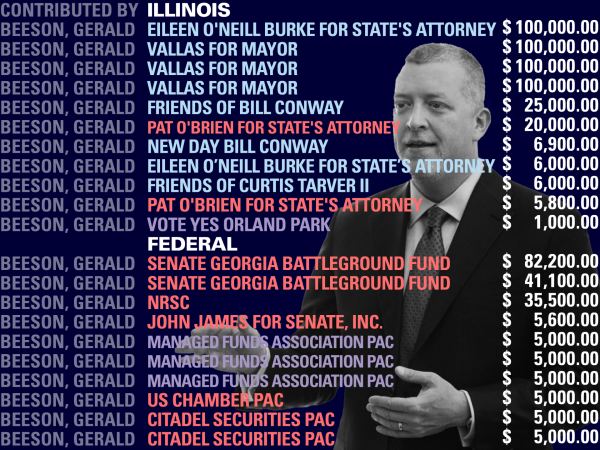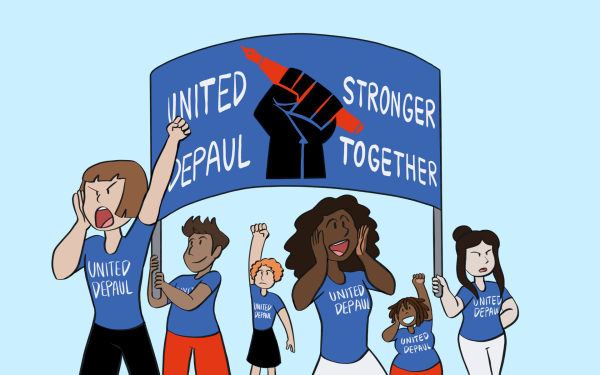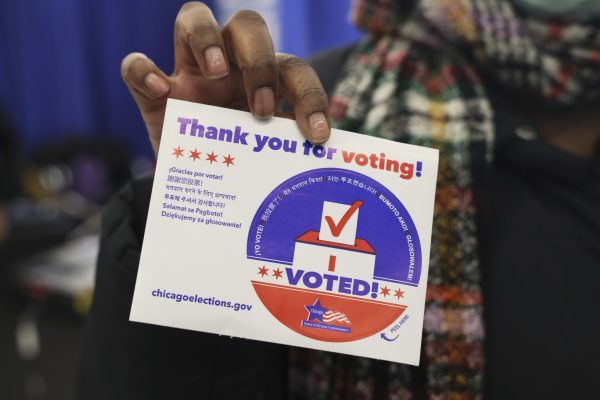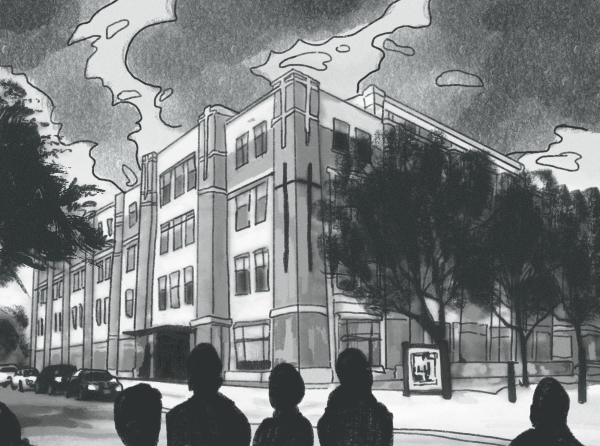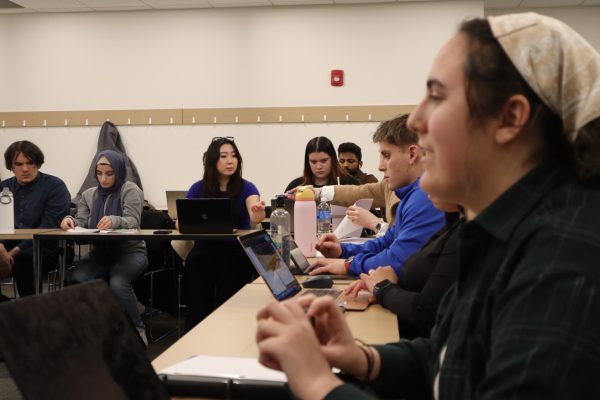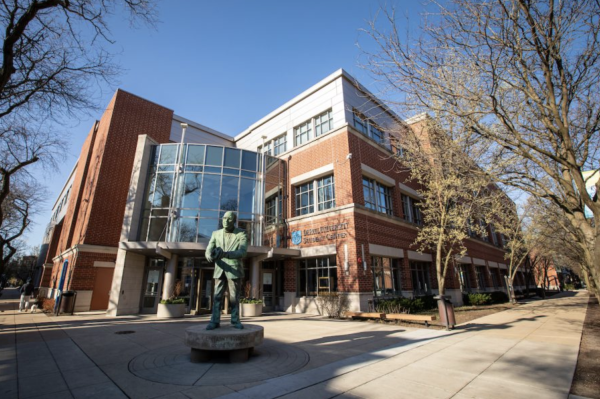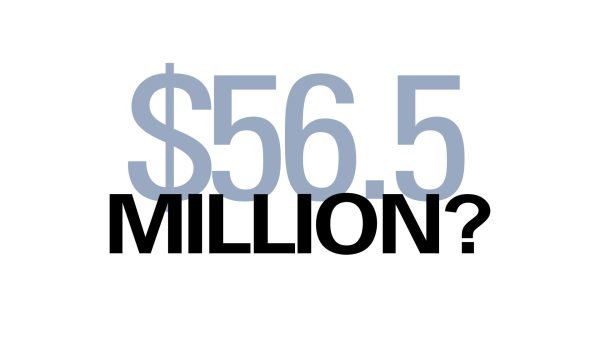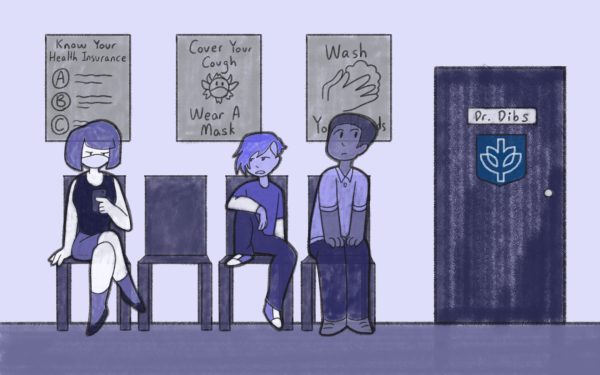Dolores Huerta talks issues relevant to Latinx community at virtual event
Civil rights leader Dolores Huerta spoke with DePaul students Wednesday.
The Office of Institutional Diversity and Equity, hosted the Dolores Huerta Celebration Wednesday, aiming to highlight contemporary issues that have an impact on the Latinx community. The mission was to address the Vincentian question of “What should be done?” as the nation faces a momentum of cultural and political change.
“We live in the richest country in the world, but we have to do a lot better,” said Dolores Huerta, a civil rights activist, who co-founded the National Farmworkers Association alongside Cesar Chavez. “This is the moment where we all have to become activists… by all of us working together, we can make the world what we want to see.”
Huerta has been a civil rights icon in the Latinx community as she not only fought for the rights of farmworkers since 1965, but has pushed to change the narrative of the community through political activism. She has been an advocate on issues of social and economic development. Through the Dolores Huerta foundation, she continues to empower communities to pursue social justice and create spaces of equality, inclusion, and equity.
La DePaulia spoke with Huerta on her activism, the power behind the Latinx community narrative, and her thoughts regarding recent unrest across the country.
Q: I would love to hear more about the famous phrase ‘si se puede’ what does it mean to you, what did it mean back in the 70s and what does it mean now in 2020?
‘Si se puede’ means yes we can, in Spanish it means both singular ‘I can’ and ‘we can’, that’s the power of that slogan. It means we can envision all this and we can make it happen. To all the young people, don’t give up and it can happen a lot faster than when we were organizing back then in the 60 and 70s by people mobilizing so quickly and educating and informing. For all of you young people, you deserve to have a planet that is healthy, that it has air that you can breathe, not only for yourself but for your children and grandchildren. So we can make this happen but we will have to work very hard to do it. We can’t afford to give up.
Q: During Covid we saw the essential role that Latinos play, a large portion of the essential workers in the U.S are dreamers, what advice would you give to DACA dreamers who play an essential role in the U.S?
The pandemic has really shown us that not only are Latinos very much essential workers like they farmworkers and the service workers but also many of the DACA students are also essential for the work that they are also doing. Many of them are not only students but workers. For all the DACA students out there I would like to say please get involved in this election, I know right now you can’t vote but we do have to try to elect people to the congress of the United States so we can get another amnesty bill pass. To all the DACA folks just keep doing what you are doing, keep on working, and keep inspiring all of us.
Q: The Latino community makes a large portion of the U.S population, how can the Latino community continue to fight and take back the narrative of their own and their roots here in the country? How can we continue to advocate for our people and the stories of the Latinos here in the U.S?
Let’s let them know what the Latino community does, to keep our country fed, to keep our country safe, Latinos are taking care of elderly, take care of children, and all the work they do to make our country safe and clean. It’s like in slave days, the slaves did all of the work but nobody ever saw them, you never saw the people who prepared the dinner and it’s the same way that Latino workers are so invisible with all the work they do to keep our country safe and fed but you don’t see them.


